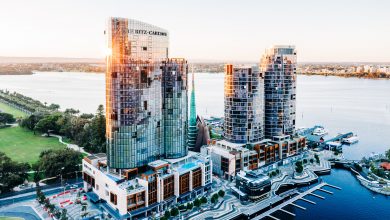
Government action taken on party house activities
The accommodation and tourist industry continually faces issues regarding visitors and guest behaviour with the blame all too often directed at management by those residents and visitors adversely affected.
This current session of state parliament took a significant step in passing legislation to give powers to local authorities to take positive action against party houses- a historic blot across the tourist centres of Queensland.
ARAMA has historically been actively committed to the edict that every guest has the right to have a peaceful and relaxing holiday and that as a result of having an enjoyable and memorable experience is either a return visitor or an advocate for the location and the facility where they stayed. The Queensland and Australian tourist industry has been built on the reputation of wonderful locations, great experiences and the ability to relax and enjoy a holiday that suits their needs and not be bothered by selfish bad behaviour..
However, one of the great blots on our holiday destinations has been the activities of unsavoury promoters who have taken advantage of taking short term rentals and then inviting and staging major parties, broadcasting the staging of the event and attracting scores and sometimes hundreds of revellers for events which adversely impact on the surrounding neighbourhood.
So ARAMA has been pleased to support the activities of the Parliamentary State Development, Planning and Industry Committee chaired by David Gibson, the member for Gympie and its contribution to the new Red Tape Reduction legislation introduced by deputy premier Jeff Seeney to introduce new powers for local authorities to take action against party houses and to review the progress of the effectiveness of the legislation within 12 months,
Members from the Gold Coast, Sunshine Coast and Central Queensland had plenty to say about the adverse impact of party houses, not just on the traditional tourist sectors, but in the suburban centres in Noosa, the Gold Coast and Yeppoon. Ray Stevens (Mermaid Beach), Rob Molhoek (Southport). Mike Hart (Burleigh) and Ros Bates (Mudgeeraba) all had horror stories to relate about behaviour and the seriousness of the issue on the holiday and residential industries of the state.
As deputy premier Seeney pointed out in his speech to parliament, “I would also like to thank the committee for convening a specific roundtable discussion at the Gold Coast to listen directly to residents affected by party houses. I am pleased to advise that my department will work with local governments that choose to opt in and regulate party houses through amendments to its planning scheme or by making a temporary planning instrument.
Mr Seeney said that as part of this process the government will seek feedback on the party house provisions from local government.
Affected residents and stakeholders are able to provide direct feedback. The proposed party house provisions will not address offensive and antisocial behaviour, but complement existing police powers to empower local government to regulate a party house as a land use as defined in the Sustainable Planning Act 2009.
David Gibson told parliament that the committee conducted a round-table discussion on the Gold Coast because it wanted to hear from people face to face. “We wanted to understand the impact when you have a party house in your street. I thank those people who came to the round-table discussion to present on and discuss the issue. They shared stories of lives of misery.”
Ms Bates pointed out that the holiday letting industry has also recognised this issue, introducing a self-regulatory code of conduct that prevents the advertisement of party houses, amongst other things. “While commendable, this also means that it is difficult to accurately quantify the number of party houses actually in operation as there is no official or unofficial record,” she said.
And for the record, Mr Young (Keppell) defined the party house. “They are generally residential dwellings that are regularly leased, hired or rented for social events such as weddings, birthday parties, bucks parties, hens nights and raves.”
Party houses in residential areas are associated with generating nuisance for neighbours with traffic hazards, excessive noise, offensive social behaviour, littering and illegal activities. The provisions of this bill complement police powers that are already in place to deal with antisocial behaviour, enhanced even further with the out-of-control parties policy addressed in the Police Powers and Responsibilities Bill 2013.
The provisions proposed in this bill will empower local governments to regulate party houses from a planning and development perspective. It provides the mechanisms through the development approval process for a council to decide if a defined party house is to be approved or not approved in a residential area. Councils can also choose through a development assessment process to identify a party house restriction area in their planning scheme.
I am sure that that our industry will welcome this positive approach to visitor management. The management of “schoolies” has also meant that holiday visitors can be responsibly managed without interfering in the regular holiday operations.
As one of the four pillars of the economy, tourism and holiday accommodation needs to move with the times and ensure that every visitor can enjoy their break and help the regional economy at that same time.






